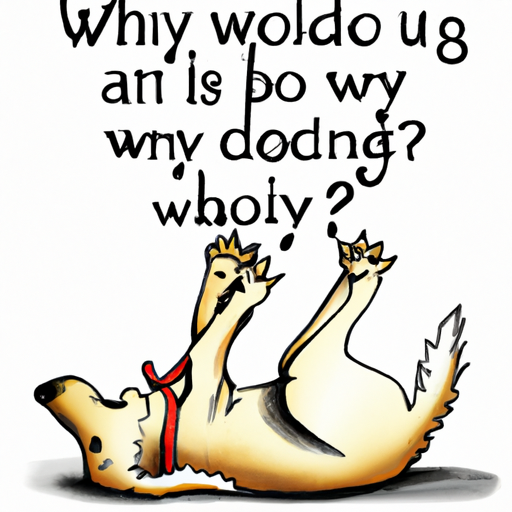Understanding The Basics
You might have noticed your beloved canine companion often curling their paws. Rest assured, this behavior is quite ordinary and can be attributed to a variety of reasons. From the evolutionary instincts that have been passed down through generations to the simple need for coziness, your dog’s paw curling could mean a multitude of things.
The Evolutionary Perspective
Dogs, like many other creatures, have instincts that have been passed down from their wild ancestors. These instincts can manifest in a variety of behaviors, including the curling of paws.
- Protection: In the wild, curling paws under their bodies helps animals to protect their vital organs from predators. It’s a defensive position that’s hardwired into your dog’s instincts.
- Warmth: Curling up is also a way for animals to conserve body heat, particularly in cold weather. Your dog might be channeling its inner wolf when it curls up on a chilly night.
The Comfort Factor
In some cases, your dog might simply find it comfortable to curl their paws under their body.
- Resting Position: Many dogs find the curled-up position a comfortable way to rest or sleep. It’s similar to how some people prefer to sleep in the fetal position.
- Relaxation: Curling their paws can also be a sign that your dog is relaxed and content.
Health-Related Causes
While most of the time, paw curling is harmless, sometimes it can be a sign of a health issue.
| Health Issue | Symptoms |
|---|---|
| Arthritis | Difficulty moving, limping |
| Paw injury | Licking or chewing at the paw |
| Neurological disorder | Loss of balance, uncoordinated movements |
If your dog is showing any of these symptoms along with paw curling, it’s a good idea to consult with a vet.
The Emotional Aspect
Finally, dogs can sometimes curl their paws as a way to communicate their emotional state.
- Anxiety: Anxiety can cause dogs to engage in repetitive behaviors, such as paw curling.
- Submission: In some cases, a dog might curl its paws as a sign of submission to a more dominant dog or human.
FAQs
Q1: Should I be worried if my dog is curling their paws?
Generally, it’s nothing to worry about as it’s often a sign of comfort or instinctual behavior. However, if there are other signs of discomfort or illness, it would be best to consult a vet.
Q2: How can I tell if my dog’s paw curling is due to anxiety?
Look for other signs, such as excessive licking, restlessness, or changes in appetite. If you suspect your dog is anxious, it might be good to discuss it with a vet or a professional dog behaviorist.
Q3: Can I do anything to prevent my dog from curling their paws?
Unless it’s causing pain or discomfort, there’s no need to prevent your dog from curling their paws. It’s a natural behavior that’s often a sign of comfort or contentment.



